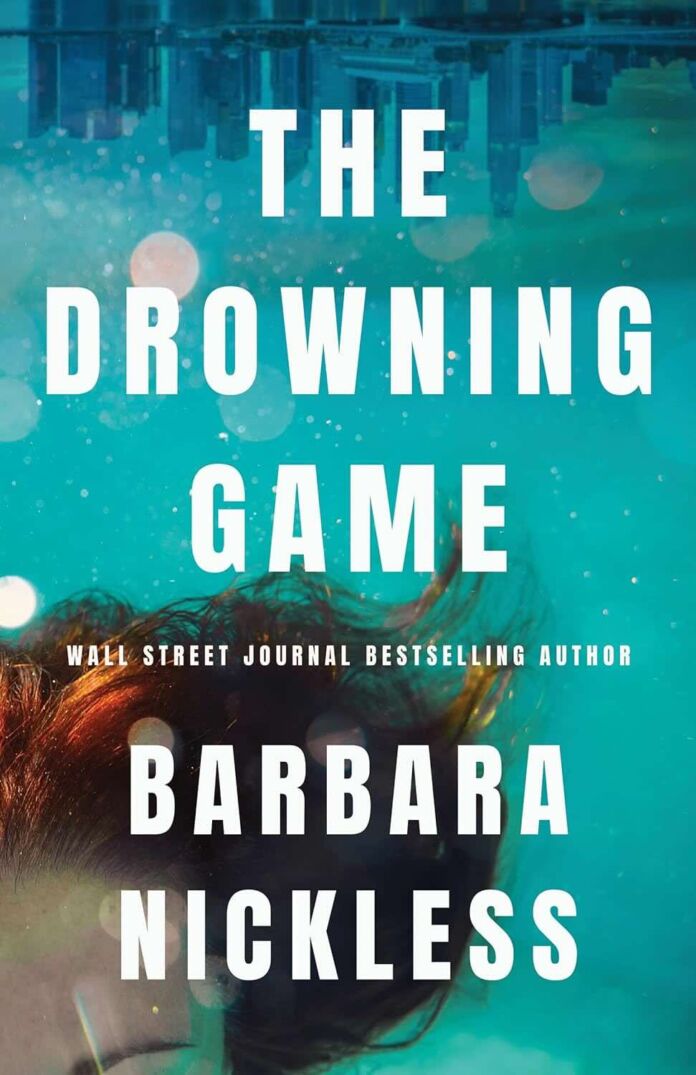Barbara Nickless, acclaimed author of the Sydney Rose Parnell and Dr. Evan Wilding series, charts a bold new course with The Drowning Game, a sophisticated maritime thriller that weaves together international espionage, family secrets, and the high-stakes world of luxury yacht building. While the novel occasionally loses its bearing in complex plot waters, it ultimately delivers a compelling tale of sisterly bonds tested by dangerous undercurrents of power, betrayal, and redemption.
Plot Overview and Analysis
The story centers on the Brenner sisters, Nadia and Cassandra, heirs to Ocean House, an elite yacht-building empire. When Cassandra apparently commits suicide by jumping from a Singapore hotel, Nadia’s grief transforms into suspicion. Her investigation uncovers her sister’s involvement in a dangerous web of Chinese intelligence operations centered around their latest project—a superyacht called Red Dragon, commissioned by Chinese AI mogul George Mèng.
Nickless demonstrates her storytelling prowess by masterfully balancing multiple narrative threads. The plot moves between Seattle, Singapore, Monaco, and Shanghai, maintaining tension while exploring themes of family loyalty, redemption, and the price of truth. The author’s extensive research into yacht building, maritime operations, and international espionage lends authenticity to the technical aspects without overwhelming readers with jargon.
Character Development
The Brenner Sisters
The contrast between the sisters forms the emotional core of the novel. Nadia, initially portrayed as the cautious yin to Cassandra’s adventurous yang, undergoes compelling character development as she steps out of her comfort zone. Her transformation from a risk-averse yacht designer to someone willing to confront dangerous intelligence operatives feels organic and well-earned.
Cassandra, though physically absent for much of the narrative, remains a powerful presence through flashbacks and revelations. Her eventual return adds another layer of complexity to the story, though some readers might find this plot twist stretches credibility.
Supporting Cast
The novel features a rich ensemble of supporting characters, including:
- Charlie Han, a complex antagonist whose pursuit of revenge is rooted in family trauma
- Connor McGrath, the CIA operative whose motives remain intriguingly ambiguous
- George Mèng, whose desire to protect his family drives much of the plot
- Emily Tan, whose tragic arc illustrates the human cost of international power plays
Strengths
- Technical Authenticity: Nickless’s attention to detail in describing yacht design and maritime operations adds credibility to the narrative.
- Complex Moral Landscape: The author resists simple good-versus-evil dichotomies, presenting characters with layered motivations and conflicting loyalties.
- Pacing: The story maintains momentum while allowing for necessary character development and exposition.
- Setting: The international locations are vividly rendered, particularly Singapore and Shanghai.
Areas for Improvement
- Plot Complexity: Some readers may find the multiple intelligence agencies and competing agendas challenging to follow.
- Coincidences: A few plot developments rely on convenient timing or connections that strain credibility.
- Secondary Character Development: Some supporting characters could benefit from deeper exploration.
Writing Style and Craft
Nickless employs a sophisticated prose style that balances technical precision with emotional resonance. Her descriptions of maritime environments and yacht engineering demonstrate extensive research while remaining accessible to general readers. The author excels at creating atmosphere, whether describing the opulent interiors of superyachts or the tense atmosphere of covert operations.
Thematic Depth
The novel explores several compelling themes:
- Family loyalty versus moral responsibility
- The weight of inherited guilt
- The cost of truth in a world of secrets
- The impact of technological advancement on international relations
- The complexity of loyalty in a globalized world
Comparison to Other Works
While The Drowning Game shares DNA with maritime thrillers like Clive Cussler’s works, it more closely resembles contemporary espionage novels like Daniel Silva’s Gabriel Allon series or Charles Cumming’s intelligence thrillers. The focus on family dynamics and moral complexity also invites comparison to Joseph Finder’s corporate thrillers.
Impact and Relevance
The novel’s exploration of US-China tensions, artificial intelligence, and international espionage feels particularly timely. Nickless addresses contemporary concerns about technological sovereignty and national security while maintaining focus on human relationships and moral choices.
Final Verdict
Despite occasional moments where the plot threatens to capsize under its own complexity, Nickless successfully navigates her story through challenging waters. The novel demonstrates significant growth from her previous series, showcasing her ability to handle complex international intrigue while maintaining emotional authenticity.
Recommendation
This book will appeal to readers who enjoy:
- Maritime thrillers with technical authenticity
- Complex espionage narratives
- Stories about family dynamics and moral choices
- International settings and multicultural perspectives
- Strong female protagonists
However, readers seeking a straightforward thriller might find the multiple plot threads and technical details challenging to navigate.
Author Background and Bibliography
Barbara Nickless brings substantial credentials to this maritime thriller. Her previous works include the award-winning Sydney Rose Parnell series (Blood on the Tracks, Dead Stop, Ambush, Gone to Darkness) and the Dr. Evan Wilding series (At First Light, Dark of Night, Play of Shadows). Her expertise in crafting complex mysteries shines through in The Drowning Game, though this represents a significant departure from her previous work in terms of scope and setting.
Conclusion
The Drowning Game represents an ambitious expansion of Nickless’s storytelling range. While not without flaws, the novel succeeds in delivering a sophisticated thriller that combines technical authenticity with emotional depth. The author’s careful attention to both human relationships and technical details creates a compelling narrative that will satisfy both thriller enthusiasts and readers seeking more complex explorations of family dynamics and moral choices.
For fans of international thrillers and maritime adventures, The Drowning Game offers a fresh perspective on familiar themes, wrapped in a package of technical authenticity and emotional resonance. While it occasionally struggles with its complex plot mechanics, the novel ultimately delivers a satisfying journey through both physical and moral waters.





